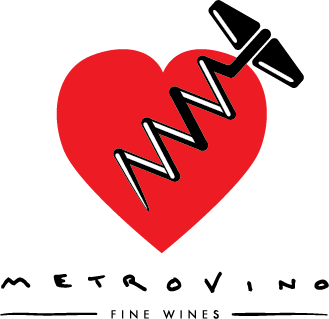Eva Fricke, eltville
Have you ever been proud of somebody that you had no right to be proud of? There should be a word for that phenomenon and perhaps there is, one that exists beyond the reaches of my primitive diction. I first met Eva Fricke when she was the cellarmaster at Weingut Leitz and such is her modesty and diplomacy that it was only later that I happened to discover that she made wine under her own name too. I arranged a meeting with her on my next trip to Germany and really didn’t know what to expect; she was a pleasure to work with at Leitz and she obviously hadn’t done anything to impede Johannes’ Rieslings from being amongst my favorite wines around.
Needless to say, and as can be deduced by the fact that Metrovino has become the first and only retail destination for Eva’s wines in Canada, I not only found the wines to be delicious, but also utterly and viably unique.
Eva herself is unique amongst our other German producers in that she does not come from a winemaking family, nor is she native to a winegrowing region. I often think of her as the female version of Andreas Adam, or vice versa (they are both young, they both have miniscule holdings in comparably obscure terroirs, they both farm as “organically” as possible in regards to their respective vineyards and they both pursue non-interventionist ideals in the winery), but Andreas grew up surrounded by vineyards with modest parcels belonging to his family whereas Eva was born in Northern Germany, the daughter of two doctors. She was attracted to the idea of viticulture as an arbitrary form of farming, prior to actually developing a love for wine. This came later, as did viticultural and oenological studies in Geisenheim and winemaking experience in such disparate environs as Bordeaux, Piemonte, Ribera del Duero and South Australia.
Eva began working for Johannes Leitz in 2004 and saw the estate through a time of geographical expansion and qualitative improvement, but her agreement with Johannes allowed for her to pursue her own projects simultaneously. The first commercial vintage for Weingut Eva Fricke was in 2006, a miniscule offering of Riesling fermented in glass balloons and a 300 litre tank. Bit by bit she was able to expand her vineyard holdings and winemaking equipment with a major breakthrough coming in 2008 when she began renting a spacious and beautiful cellar in Kiedrich, her winemaking base to this day. In 2011, with under 5 hectares of vineyards to her name and about 2000 cases of wine to sell per year, Eva took a leap of faith and tendered her resignation with Leitz in order to focus on her own wine full time.
Despite Eva’s undeniable talent for producing compelling wine, she is really only part of the story – her vineyards in Lorch, past the bend in the Rhein River at the west end of the Rheingau, must also be credited for the idiosyncratic brilliance of her wines. I believe that Eva would make exciting wine in the Okanagan or Clare Valley, for example, but Lorch is the reason that her wines are so singularly fascinating instead of merely excellent. Twenty years ago Lorch was neglected and sometimes even shunned; the west and southwest-facing slopes were just not reliable for sufficiently ripening grapes. And who wants to clamber up and down some of the steepest hillsides in the world to harvest unripe grapes? But with the undeniable influence of global warming, allied with the advent of improved viticultural techniques and the attention of partly brave, partly insane people like Eva Fricke, Lorch is now the destination for some of the most exciting wine in the Rheingau.
For Eva, two things attracted her to Lorch. First and foremost, experience taught her that she personally loves wine grown on slate and quartzite soils. Second, she began piecing her estate together when Lorch was still suffering from the hangover of its reputation of the past meaning that vineyards there were affordable to a young lady with no fortune to her name. It is noteworthy that her wines are helping to change this reputation but as a result, parcels in Lorch come up for sale much less regularly these days and are much less affordable when they do.
Lorch is politically part of the Rheingau but ideologically part of the Mittelrhein, itself capable of producing wines that stylistically marry the poise and authority of the Rheingau with the tension and vibrancy of the Mosel. Eva’s wines are the very essence of this, expertly capturing the stoic nature of Lorch itself. In a village where grapes ripen precariously instead of effortlessly, the resulting wines are profoundly mineral, unyieldingly electric and remarkably pure. In the hands of less skilled winzers (winzerettes?) they can be unforgivably tart but an Eva Fricke wine is soprano instead of shrill, resonating instead of screechy.
I would argue that all of Metrovino’s German producers are masters at crafting wines of balance and interest, but what sets Eva’s wines apart is how hauntingly vivid the aromas and flavors are. Some of her wines are charming and forthwith, others are cerebrally complex, but all are wellsprings of clarity and purity and are thrillingly explicit in expression.



